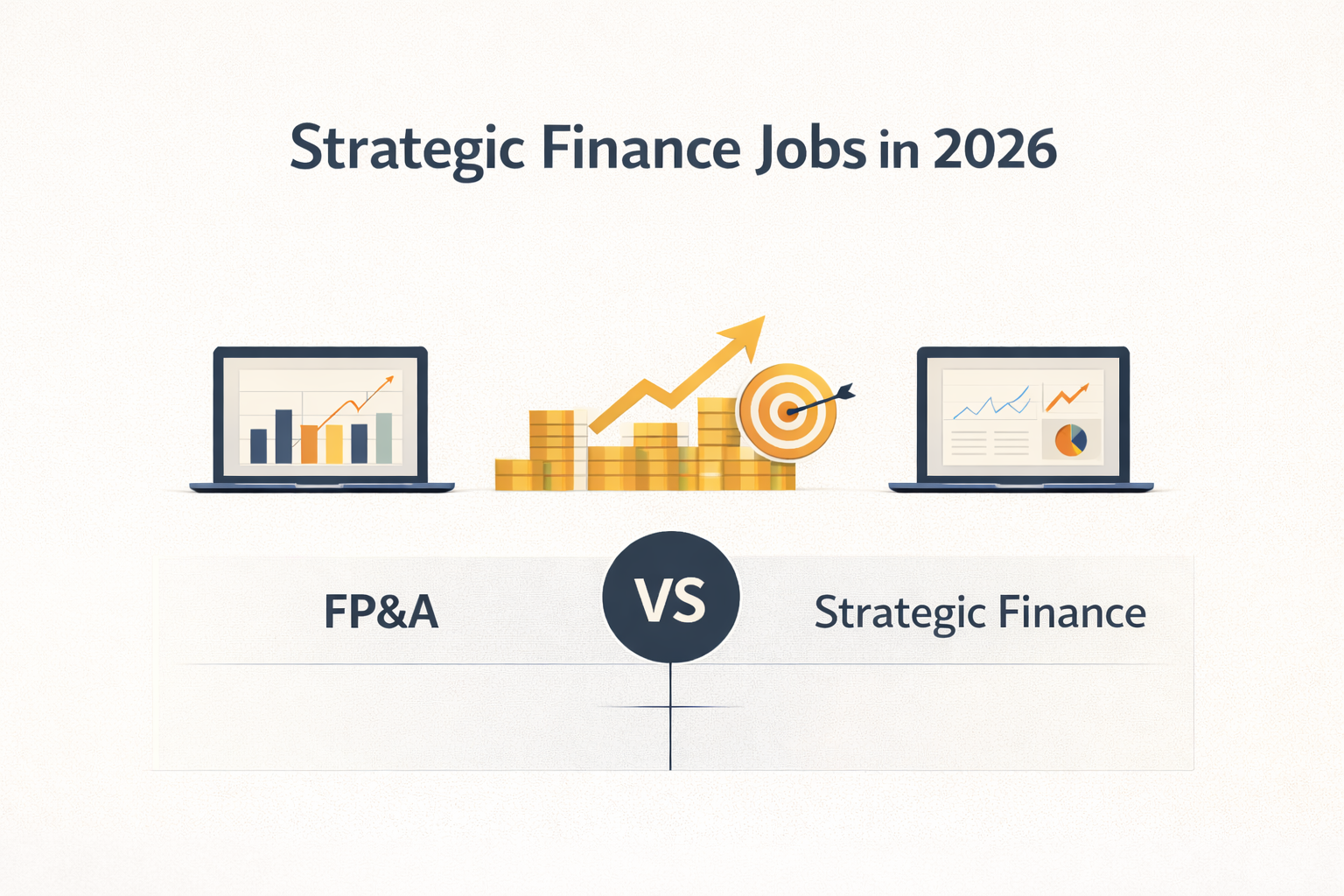Introduction:
In the intricate world of finance, two terms often find themselves at the forefront of discussions: Financial Planning & Analysis (FP&A) and Strategic Finance. While both play pivotal roles in the financial realm, their functions, scopes, and impacts differ significantly. Although we already have a much deeper dive into what is strategic finance from an older blog; in this blog post, we will delve into the key differences between FP&A and Strategic Finance, shedding light on why the latter is gaining prominence in today's dynamic business environment.
Understanding FP&A:
Financial Planning & Analysis (FP&A), commonly known as FP&A, serves as the backbone of financial management in organizations. Traditionally seen as a reporting mechanism, FP&A professionals are responsible for budgeting, forecasting, and financial reporting. Their primary focus lies in analyzing historical data to provide insights into past performance, aiding in decision-making based on historical trends.
Introduction to Strategic Finance:
Strategic Finance emerges as a dynamic force, challenging the traditional boundaries of financial roles. Unlike FP&A, Strategic Finance operates in real-time, contributing actively to decision-making processes. It goes beyond mere reporting, embracing a proactive approach to anticipate and adapt to future changes in the business landscape.
Key Differences Between FP&A and Strategic Finance:
Reporting vs. Dynamic Decision-Making:
- FP&A is primarily focused on historical reporting, while Strategic Finance thrives on dynamic decision-making. FP&A professionals draw insights from past data, whereas their counterparts in Strategic Finance actively engage with real-time information, enabling quicker and more informed decisions.
Proactive vs. Reactive:
- FP&A tends to be reactive, responding to past data and trends. On the other hand, Strategic Finance is proactive, constantly scanning the horizon for potential changes, risks, and opportunities. This proactive stance positions organizations to be ahead of the curve.
Role in Strategic Decision-Making:
- While FP&A is integral for reporting and analysis, Strategic Finance goes a step further by actively contributing to strategic decision-making. Strategic Finance professionals play a key role in shaping business strategies based on their forward-looking analysis.
The Evolution: FP&A Moving into Strategic Finance:
In recent years, there has been a noticeable shift in the role of FP&A professionals. As businesses recognize the need for more dynamic decision-makers, FP&A is evolving into a more strategic function. The demand for professionals who can bridge the gap between traditional reporting and strategic decision-making is on the rise.
Why Strategic Finance Matters in Finance Careers:
The relevance of Strategic Finance extends beyond organizational boundaries and holds significance in various finance careers. Whether in the fast-paced world of investment banking or when breaking into the tech industry, a deep understanding of strategic finance sets individuals apart. It is a skill that resonates within the finance community, creating opportunities for career advancement.
How a Course in Strategic Finance Can Help:
To equip individuals with the skills needed to thrive in the evolving financial landscape, courses in strategic finance come to the forefront. These courses offer practical insights, industry knowledge, and the ability to apply strategic thinking to financial scenarios. Investing in a strategic finance course can enhance career prospects and open doors to new opportunities.
The Broader Implications:
Strategic Finance isn't just a niche skill; it's a game-changer across various finance careers. In the dynamic world of investment banking, where split-second decisions can make or break deals, professionals with a strategic finance background have a distinct advantage. Similarly, for those eyeing a transition into the tech industry, the ability to navigate complex financial landscapes is highly valued. Strategic Finance isn't just a skill; it's a passport to diverse and exciting career paths.
Benefits of a Strategic Finance Community:
In the ever-expanding realm of finance, being part of a community that understands the nuances of strategic finance is invaluable. Joining a community of like-minded professionals provides opportunities for networking, knowledge-sharing, and staying updated on industry trends. The finance community isn't just about individuals; it's a collective force driving innovation and excellence in the financial domain.
How a Course Could Transform Careers:
Enrolling in a strategic finance course is not just an educational endeavor; it's a strategic move towards career transformation. These courses are designed to offer practical, hands-on experience, allowing individuals to apply theoretical knowledge to real-world scenarios. The shift from traditional FP&A roles to strategic finance is not just about titles; it's about being at the forefront of decision-making and driving organizational success.
Conclusion:
In conclusion, the key differences between FP&A and Strategic Finance highlight the evolving nature of financial roles. Strategic Finance, with its dynamic and forward-looking approach, is becoming increasingly crucial in shaping the future of organizations. As finance professionals navigate their careers, understanding these nuances and embracing the shift toward strategic finance can be a game-changer. Explore the possibilities, stay ahead of the curve, and consider how a course in strategic finance could propel your career to new heights.
Ready to explore the world of Strategic Finance? Check out our course to discover how our courses can empower you with the skills needed to thrive in the dynamic landscape of finance. Don't just follow trends – set them with a deep understanding of Strategic Finance.






.png)

